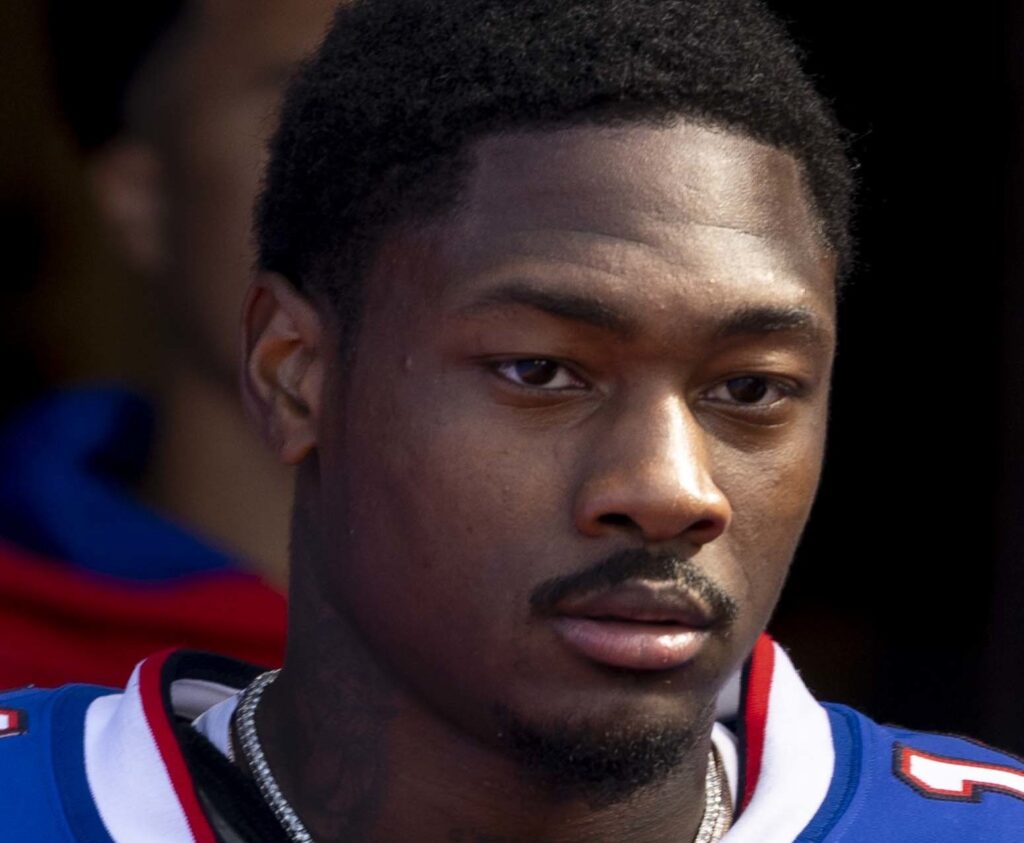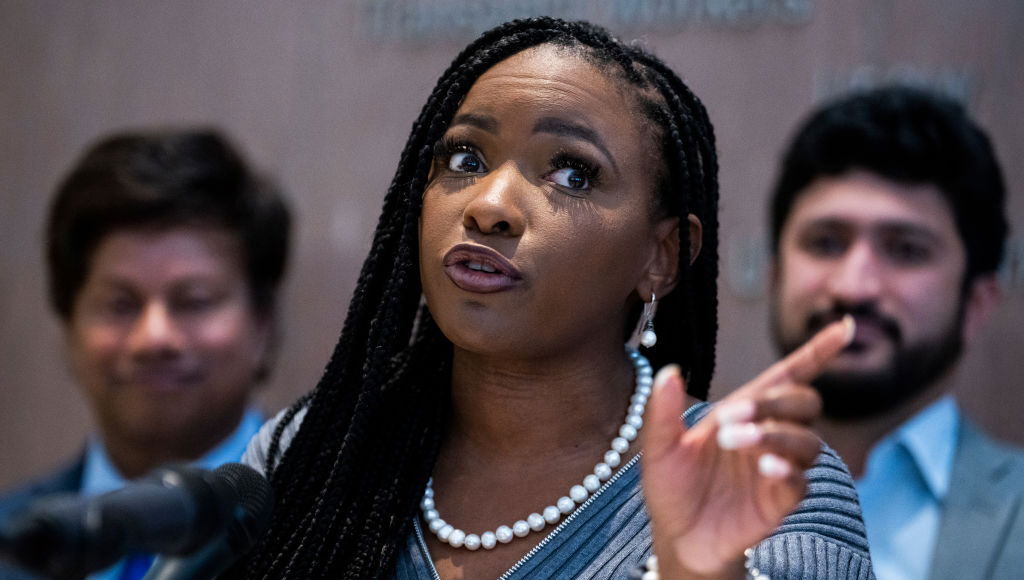Editor’s note: The following article is an op-ed, and the views expressed are the author’s own. Read more opinions on theGrio.
One day, rapper/artist Wale’s career, catalog and legacy truly needs to be explored.
Quite honestly—until now—I have found the human being to be more interesting than his catalog—more on this later. Despite that last sentence, I can acknowledge that Wale has dropped a significant amount of bangers, concept albums worthy of note, and is a fashion icon. Does he get his just due as an artist? I suppose that depends on who you ask; based on history, if you ask him, he does not.
Wale has been in our orbit as an artist for the better part of a decade and a half, and longer than that if you live in the DC-area, as I do. I remember Wale hitting the scene back in 2006-ish, being played on the radio in the DMV as the region’s newest, best hope to take a DC sound national, and he’s done that in a way that few other artists have been able to do. Being “the” guy from an area comes with a lot of pressure, and for an artist who has a reputation for being prickly, that pressure can sink an entire career. Fortunately for Wale, his talent has largely won out. It’s 2025 and he’s still releasing albums that garner national attention, an outstanding feat for an artist whose national debut was on 2009’s XXL Freshman cover (back when that was a thing), alongside the likes of Asher Roth, B.o.B., Charles Hamilton, Blu, Mickey Factz, Currensy, etc. While most of the artists on that list are still making music, Wale and Kid Cudi are the two with most constant and present impact, at least on charts and in media.
On November 14, Wale released his 8th studio album, “everything is a lot,” an album whose opening line is “My baby mother told her new husband she had to move on.”
Let that sit for a second. That is how the album OPENS. The title of the song is “Conundrum” and it (and the album) had my full attention from that point on. I don’t know why that combination of words was so gut wrenching but it implies a level of honesty, transparency and vulnerability that had people declaring Jay-Z’s “4:44” album “grown man, accountability” rap. You can’t begin your album with that much information about your personal life without grabbing people’s undivided attention. From there the album weaves into “Belly,” a song that I’d argue might be Wale’s greatest song ever for it’s sound, honesty, introspection, vulnerability, information and execution. I’m sure people who are diehard Wale fans might already know and appreciate how he lays his heart bare—that’s kind of Wale’s calling card—but he does so on “Belly” and honestly throughout this album in ways that are compelling; as it turns out, I care about Wale’s story, and how he’s misunderstood (or difficult, again, depending on who you ask).
The thing that stood out to me most about the album wasn’t just Wale was being this open, but just about how true-to-concept the title of the album is; for most of us, everything is a lot, and its interesting to hear a very successful, wealthy, rap star speak so candidly about not so much the trappings of success (a la Drake) but the trappings of life and making it. I’ve long argued that most of us Black males, even those who have made it out, aren’t that far removed from the struggle. Wale speaks to that in terms of close friends lost, pressure from family about success and relationships, his own introvertedness and lack of desire to be the person who has to play the game to succeed in it. I’m actually impressed with how much ground he covered on this album in terms of his life.
I have jokingly said that I’d like to be Ray J’s Alex Haley, writing his autobiography because I feel like there’s a truly great story there, but I actually mean that when speaking about Wale. While Wale and I have very different lives in the literal sense, the pressures that he speaks of in relationships and professionally aren’t foreign to me, or to many other Black men that I know. Everything is, indeed, a lot. This isn’t an album review, but listen to the album—it’s worth the time.
Which brings me to my concern about this album; nowadays music has a very short lifespan, save for the diehard fans who might continue to spin the songs. Unless an album has some cultural resonance (think Doechii’s “Alligator Bites Never Heal,” Kendrick Lamar’s “GNX,” or SZA’s “SOS,” coincidentally the three artists name checked by Nas as mattering on De La Soul’s “Run It Back” from their new album ), its easy to move on. The amount of albums that have been released, which matter on release day but are figments of the past three days later (as we gear up for another set of releases the next Friday), is troubling.
I know it’s just the nature of the music industry nowadays; there’s both SO much music available that it’s hard to keep up and indulge critically unless the project is just that stellar. Chance The Rapper released “Starline” a few months ago, and by all metrics it was well-received and a sonic masterpiece by all who listened; the community has seemed to move on from it. Same with JID’s “GOD DOES LIKE UGLY,” another in the line of insanely amazing pieces of art that the culture was able to move on from.
I hope people are able to sit with Wale’s new album and give it the full critical analysis it deserves. I’m sure artists get annoyed when their albums and works get thinkpieced to death, but honestly, that’s how albums become the stuff we still talk about ten years later, and its better than being reduced to a soundbite about J. Cole’s “False Prophets,” which might make the rounds on social media but has nothing to do with his actual work. When people analyze, breakdown and dive into the individual pieces and what the art says about the artist and the world we live in, that’s how artists live forever. It feels like there are millions of albums released each year, and we only truly engage with and remember a handful. That’s usually because of who the artists is (Drake, Kendrick, Nicki Minaj to a degree), but also because of what the project ends up being.
Wale released an album about being successful and still struggling through life, at the same time. That isn’t a concept; that’s reality for most people. Money doesn’t solve things, and it doesn’t make relationships easier. Being an artist, even a famous one, definitely makes things harder; Wale isn’t the first artist to write about that dynamic.
As a Black male who sees himself in the art that Wale released and can understand his conundrum, and why he’s needed therapy and what that therapy has revealed over his journey, I truly hope the culture can appreciate an album as vulnerable as this one. The pressure to make it out of the DC area, continue to put on, and really, continue to be a musical artist of note while dealing with life finding new ways to ruin you, is a story more artists need to tell. I’ve been critical of Wale in the past, and as a cultural commentator who focuses mostly on music, that’s par for the course. But that also means I have to acknowledge when an artist goes “there” and gives the people a body of work that is worthy of true reflection and appreciation. I hope it gets that because really…
…everything is a lot.

Panama Jackson is a columnist at theGrio and host of the award-winning podcast, “Dear Culture” on theGrio Black Podcast Network. He writes very Black things, drinks very brown liquors, and is pretty fly for a light guy. His biggest accomplishment to date coincides with his Blackest accomplishment to date in that he received a phone call from Oprah Winfrey after she read one of his pieces (biggest) but he didn’t answer the phone because the caller ID said “Unknown” (Blackest).





